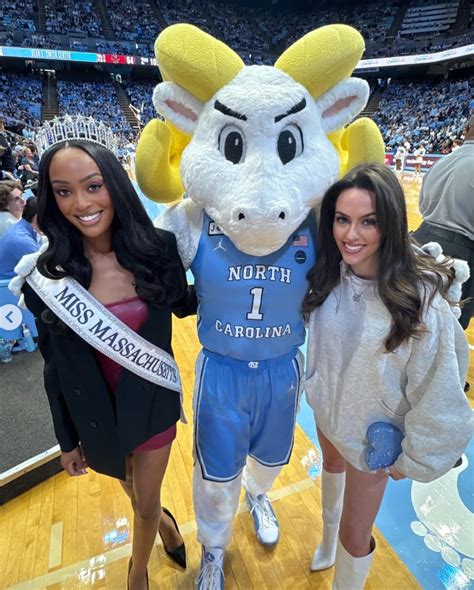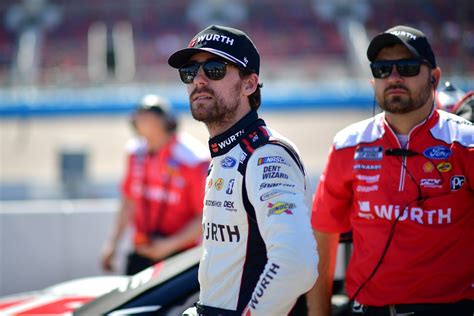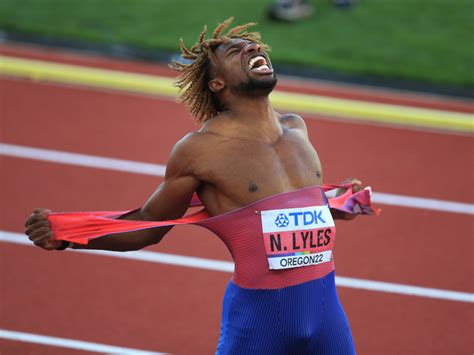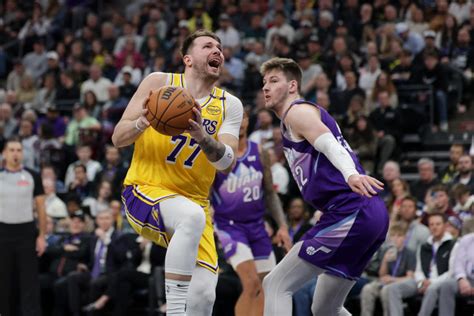
The highly anticipated partnership between Bill Belichick and Mack Brown at the University of North Carolina (UNC) for quarterback Drake Maye’s pro day has been widely criticized after Maye’s performance reportedly failed to impress NFL scouts. The collaboration, intended to showcase Maye’s talents under the tutelage of arguably the greatest NFL coach of all time, instead raised concerns about Maye’s readiness for the professional level and sparked questions about the effectiveness of Belichick’s involvement.
The presence of Belichick at UNC’s pro day generated significant buzz, with many expecting his expertise to elevate Maye’s performance and solidify his position as a top quarterback prospect. However, according to reports, Maye struggled with accuracy, decision-making, and overall command during the drills. Scouts in attendance noted inconsistencies in his throws and a lack of polish that was unexpected given his high draft projection.
The decision to bring in Belichick has now come under scrutiny, with some analysts suggesting that it may have backfired, placing undue pressure on Maye and ultimately hindering his performance. The situation has left many wondering what went wrong and what impact this could have on Maye’s draft stock.
The Allure and the Setup
The premise was enticing: pairing one of college football’s most respected coaches in Mack Brown with the NFL’s legendary Bill Belichick to guide a potential franchise quarterback in Drake Maye through his pro day workout. This partnership was designed to showcase Maye’s talent, intelligence, and coachability, further cementing his status as a top pick in the upcoming NFL Draft. The anticipation surrounding the event was palpable, as scouts, coaches, and analysts eagerly awaited to see how Maye would perform under the watchful eyes of two coaching titans.
Mack Brown, known for his ability to develop quarterbacks and his charismatic leadership, believed that Belichick’s presence would provide Maye with invaluable insights and a unique opportunity to impress NFL decision-makers. The idea was that Belichick’s expertise in evaluating talent and designing strategic drills would highlight Maye’s strengths and address any perceived weaknesses.
However, the reality of the pro day did not live up to the expectations. From the outset, Maye appeared uncomfortable and struggled to execute the throws with the precision and accuracy that scouts had hoped to see. Reports indicated that he missed several targets, made questionable decisions, and lacked the poise that is typically associated with a quarterback poised to be a top draft pick.
What Went Wrong? Unpacking the Disappointment
Several factors may have contributed to the disappointing outcome of the Belichick-Hudson-Maye collaboration at UNC’s pro day. These include the pressure of the situation, potential communication breakdowns, and the limitations of a single workout in accurately assessing a player’s potential.
-
The Pressure Cooker: The presence of Bill Belichick, a figure synonymous with success and high standards, undoubtedly added immense pressure on Drake Maye. Knowing that he was being evaluated by one of the greatest coaches in NFL history could have made Maye overthink his throws and second-guess his decisions. The added scrutiny may have amplified any pre-existing anxieties or nerves, leading to a less-than-stellar performance. According to some reports, Maye appeared visibly tense and lacked the usual confidence that he displayed during his college career. The weight of expectations, both internal and external, may have simply been too much for him to handle on that particular day.
-
Communication and Chemistry: While Belichick’s expertise is undeniable, his familiarity with Maye’s specific skill set and tendencies was limited. Unlike Mack Brown and the UNC coaching staff, who had worked closely with Maye for years, Belichick had only a short period to assess his strengths and weaknesses. This lack of established rapport could have led to miscommunication during the pro day drills. Belichick’s coaching style, known for its demanding and detail-oriented approach, may not have meshed well with Maye’s personality or learning style. The absence of a pre-existing coach-player relationship could have hindered their ability to effectively communicate and adjust to any challenges that arose during the workout.
-
The Pro Day Paradox: Pro days, while important for showcasing a player’s physical abilities, are not always the most accurate reflection of their true potential. The controlled environment and scripted drills can often mask a player’s weaknesses and inflate their strengths. In Maye’s case, the pro day setting may have inadvertently highlighted some of his flaws. Without the benefit of game-like situations, such as reading defenses and making split-second decisions under pressure, Maye’s limitations became more apparent. The lack of live action and the absence of a genuine competitive environment may have contributed to his struggles.
-
Overshadowing Effect: Belichick’s massive reputation in NFL could have inadvertently overshadowed Drake Maye. Instead of focusing solely on Maye’s abilities, the scouts and media might have been too distracted by Belichick’s presence and analysis, distorting the evaluation process. Some may have been more interested in observing Belichick’s coaching methods than Maye’s performance, shifting the emphasis away from the quarterback himself.
-
Hudson’s Role Questioned: While Belichick garnered much of the attention, private quarterback coach Whitfield “Whit” Hudson played a significant role in preparing Maye for the pro day. Hudson is known for his work with several high-profile quarterbacks, and his involvement raised expectations for Maye’s performance. However, the results sparked questions about the effectiveness of the collaboration between Hudson and Belichick, and whether their training methodologies were fully aligned. The lack of a seamless integration of training approaches may have contributed to Maye’s inconsistencies.
The Fallout and Repercussions
The fallout from the disappointing pro day has been significant, raising concerns about Maye’s draft stock and prompting a reevaluation of his potential among NFL teams. The initial consensus that Maye was a lock for a top-three pick has been challenged, with some analysts suggesting that he may now fall further down the draft board.
-
Draft Stock Uncertainty: Maye’s draft stock has become less certain. While he is still expected to be a first-round pick, his chances of being selected in the top three have diminished. Some NFL teams may now view him as a riskier prospect, given his inconsistencies at the pro day.
-
Increased Scrutiny: Maye will face increased scrutiny from NFL teams in the lead-up to the draft. Teams will likely conduct additional interviews, film studies, and private workouts to further assess his strengths and weaknesses. Maye will need to demonstrate that he can overcome the challenges he faced at the pro day and prove that he has the potential to be a successful NFL quarterback.
-
Damage to Reputation: The debacle may have tarnished Belichick’s reputation slightly. While his overall legacy remains secure, the episode raises questions about his ability to quickly assess and improve quarterback prospects, especially in a short time frame. It also underscores the difficulty of translating NFL expertise to the college level without a sustained, integrated approach.
-
Maye’s Mindset: The event could have negatively impacted Maye’s confidence. It will be crucial for him to mentally rebound and demonstrate resilience as he prepares for the draft. How he handles the criticism and uses it as motivation will be key indicators of his character and potential for growth.
The Bigger Picture: Lessons Learned
The Belichick-Hudson-Maye fiasco at UNC’s pro day serves as a cautionary tale about the complexities of evaluating quarterback prospects and the limitations of relying solely on a single workout. It also highlights the importance of communication, chemistry, and managing expectations when bringing in external experts to work with young players.
-
No Quick Fixes: The episode underscores the fact that there are no quick fixes in quarterback development. Building a successful quarterback requires a long-term commitment, consistent coaching, and a strong coach-player relationship. Simply bringing in a high-profile coach for a single workout is not a substitute for sustained, dedicated training.
-
Chemistry Matters: The importance of chemistry between a coach and a player cannot be overstated. A successful coach-player relationship is built on trust, communication, and a shared understanding of goals and expectations. Without this foundation, even the most talented coaches may struggle to effectively mentor and develop a young player.
-
Manage Expectations: It is crucial to manage expectations when bringing in external experts to work with young players. While the allure of having a legendary coach like Bill Belichick involved can be tempting, it is important to recognize that his expertise may not always translate seamlessly to the college level. Setting realistic goals and avoiding undue pressure can help create a more positive and productive environment.
-
Holistic Evaluation: A quarterback’s potential cannot be accurately assessed based on a single pro day performance. NFL teams must take a holistic approach to evaluation, considering a player’s entire body of work, including their college game film, interviews, and psychological assessments. Relying solely on a pro day workout can lead to flawed conclusions and missed opportunities.
-
The Human Element: The situation highlights the human element of the draft process. These are young athletes under immense pressure, and their performance can be affected by nerves, expectations, and the unique circumstances of a pro day. Recognizing and accounting for these factors is crucial for a fair and accurate evaluation.
Alternative Perspectives
While many have criticized the Belichick-Hudson-Maye collaboration, some argue that it is too early to draw definitive conclusions about Maye’s potential based on a single pro day performance. They contend that Maye’s struggles may have been an anomaly and that he still possesses the talent and potential to be a successful NFL quarterback.
-
Focus on the Tape: Supporters of Maye argue that his college game film provides a more accurate representation of his abilities. They point to his arm strength, athleticism, and decision-making skills as evidence of his potential. They suggest that the pro day performance should be viewed as an outlier and that NFL teams should focus on his overall body of work.
-
Developmental Project: Some believe that Maye is a developmental project who needs time and patience to reach his full potential. They argue that he has the raw talent to be a star but needs to refine his technique and improve his consistency. They suggest that the pro day performance should be viewed as a learning experience and that Maye will benefit from working with experienced NFL coaches.
-
Draft Day Surprise: It is possible that NFL teams will still be impressed by Maye’s potential and select him earlier than some analysts predict. The draft is an unpredictable process, and teams often make surprising decisions based on their individual needs and preferences. Maye’s combination of physical tools and potential upside may still be enough to convince a team to take a chance on him early in the draft.
Conclusion
The Belichick-Hudson-Maye pro day saga serves as a stark reminder of the complexities and uncertainties of the NFL Draft process. While the event may have raised some concerns about Drake Maye’s readiness for the professional level, it is important to avoid drawing definitive conclusions based solely on a single workout. Maye still possesses the talent and potential to be a successful NFL quarterback, but he will need to overcome the challenges he faced at the pro day and prove that he can live up to the high expectations that have been placed upon him. The lessons learned from this episode underscore the importance of communication, chemistry, managing expectations, and taking a holistic approach to evaluating quarterback prospects. Ultimately, Maye’s success in the NFL will depend on his ability to learn, adapt, and continue to develop his skills under the guidance of experienced coaches.
Frequently Asked Questions (FAQ)
-
Why did Bill Belichick attend Drake Maye’s pro day?
- Bill Belichick’s presence at Drake Maye’s pro day was intended to provide his expertise in evaluating talent and designing strategic drills to showcase Maye’s strengths and address perceived weaknesses, potentially solidifying Maye’s status as a top NFL Draft pick.
-
What were the reported issues with Drake Maye’s performance at the pro day?
- Reports indicated that Maye struggled with accuracy, decision-making, and overall command during the drills. Scouts noted inconsistencies in his throws and a lack of polish that was unexpected given his high draft projection.
-
How might Maye’s pro day performance affect his draft stock?
- Maye’s draft stock has become less certain. While he is still expected to be a first-round pick, his chances of being selected in the top three have diminished. Some NFL teams may now view him as a riskier prospect, given his inconsistencies at the pro day.
-
Was Belichick paid for his appearance at UNC’s pro day?
- While the exact financial arrangement has not been publicly disclosed, it is believed that Belichick’s involvement was more about evaluating talent and potentially establishing connections for future opportunities. It is unlikely he was directly compensated by UNC or Maye’s representatives, though there could have been indirect benefits.
-
Who is Whitfield “Whit” Hudson and what was his role?
- Whitfield “Whit” Hudson is a private quarterback coach who played a significant role in preparing Maye for the pro day. His involvement raised expectations, but the results sparked questions about the effectiveness of his collaboration with Belichick. The lack of seamless integration of training approaches may have contributed to Maye’s inconsistencies.
-
What factors contributed to the disappointing outcome of the pro day?
- Several factors may have contributed, including the pressure of Belichick’s presence, potential communication breakdowns between Belichick and Maye, and the inherent limitations of a pro day setting in accurately assessing a player’s true potential in game-like situations.
-
Did Belichick’s coaching style mesh well with Drake Maye’s personality?
- It’s speculated that Belichick’s demanding and detail-oriented coaching style may not have meshed well with Maye’s personality or learning style, potentially hindering their ability to effectively communicate and adjust during the workout.
-
How does a pro day differ from a game in terms of evaluating a quarterback?
- Pro days provide a controlled environment with scripted drills, which can mask a player’s weaknesses. Games, on the other hand, offer real-time assessments of a player’s ability to read defenses, make split-second decisions under pressure, and demonstrate overall command in a competitive setting.
-
What lessons can be learned from the Belichick-Maye pro day experience?
- The experience highlights the importance of communication, chemistry, managing expectations, and taking a holistic approach to evaluating quarterback prospects. It underscores the fact that there are no quick fixes in quarterback development.
-
What is the ‘holistic approach’ to evaluating quarterbacks?
- A holistic approach involves considering a player’s entire body of work, including their college game film, interviews, psychological assessments, and other relevant factors, rather than relying solely on a single pro day workout.
-
What does this mean for Mack Brown and the UNC program?
- While this event might bring some short-term scrutiny, Mack Brown’s long and successful career likely buffers him from significant long-term damage. However, it does serve as a reminder of the pressures and public nature of high-profile player development.
-
How might Drake Maye rebound from this experience?
- Maye can rebound by focusing on the feedback he received, working on his technique, and mentally preparing himself for the pressures of the NFL Draft process. Demonstrating resilience and a strong work ethic will be crucial in proving his potential to NFL teams.
-
Could the presence of Belichick have been a distraction rather than a benefit?
- Yes, it’s possible that Belichick’s presence could have inadvertently overshadowed Maye, with scouts and media being more focused on observing Belichick’s coaching methods than on Maye’s actual performance.
-
What is the overall consensus among NFL analysts regarding Maye’s future?
- The consensus has shifted. While Maye is still considered a first-round prospect, his status as a guaranteed top-three pick is now in question. Analysts are advising teams to thoroughly evaluate all aspects of his game before making a final decision.
-
What steps will NFL teams likely take to further evaluate Maye before the draft?
- Teams will likely conduct additional interviews, film studies, and private workouts to further assess his strengths and weaknesses. They may also conduct psychological evaluations to gauge his ability to handle pressure and adapt to the NFL environment.
-
How does this situation impact other quarterback prospects in the draft?
- This situation could elevate the perceived value of other quarterback prospects, as teams may become more cautious and thoroughly scrutinize each player’s strengths and weaknesses before making a selection.
-
Was Maye’s performance entirely negative?
- While the overall impression was not positive, Maye likely had some individual throws or drills that were successful. However, the inconsistencies and missed throws overshadowed any positive moments.
-
What advice would you give Drake Maye at this point?
- Focus on what you can control: work hard, be open to coaching, and demonstrate a strong work ethic. Don’t let the criticism get you down; use it as motivation to improve and prove your potential.
-
Is it fair to judge a player solely based on one pro day performance?
- No, it is not fair. A pro day is just one piece of the evaluation puzzle. NFL teams should consider a player’s entire body of work, including their college game film, interviews, and other relevant factors.
-
What are some potential long-term effects of this event?
- Long-term effects could include a change in how NFL teams approach pro days, a greater emphasis on the importance of chemistry between coaches and players, and a more nuanced understanding of the pressures faced by young athletes during the draft process.
-
What role did UNC play in orchestrating this event?
- UNC, particularly Mack Brown, played a crucial role in setting up the pro day and facilitating the involvement of Belichick. The intention was to provide Maye with a high-profile platform to showcase his talents, but the results did not align with expectations.
-
Did Belichick provide any public comments after the pro day?
- There have been no public comments from Belichick regarding Maye’s performance. Belichick typically maintains a tight-lipped approach when it comes to evaluating players publicly, especially those who are not yet part of an NFL team.
-
How does the outcome reflect on private quarterback coaches like Hudson?
- The outcome raises questions about the effectiveness of private quarterback coaching when the results do not meet expectations. It also highlights the challenges of integrating different coaching philosophies and methodologies. It doesn’t necessarily diminish Hudson’s overall reputation, but it does add scrutiny to his approach with Maye.
-
What are some examples of quarterbacks who had poor pro days but went on to have successful NFL careers?
- While not always directly comparable, examples exist of quarterbacks whose pro day performances didn’t necessarily translate directly to their NFL success. The specific details of each case vary, but they underscore the importance of factors beyond a single workout.
-
What is next for Drake Maye in the lead-up to the NFL Draft?
- Maye will continue to meet with NFL teams for interviews and potentially private workouts. His ability to address the concerns raised at the pro day and demonstrate a willingness to learn and improve will be crucial in shaping his draft prospects.









